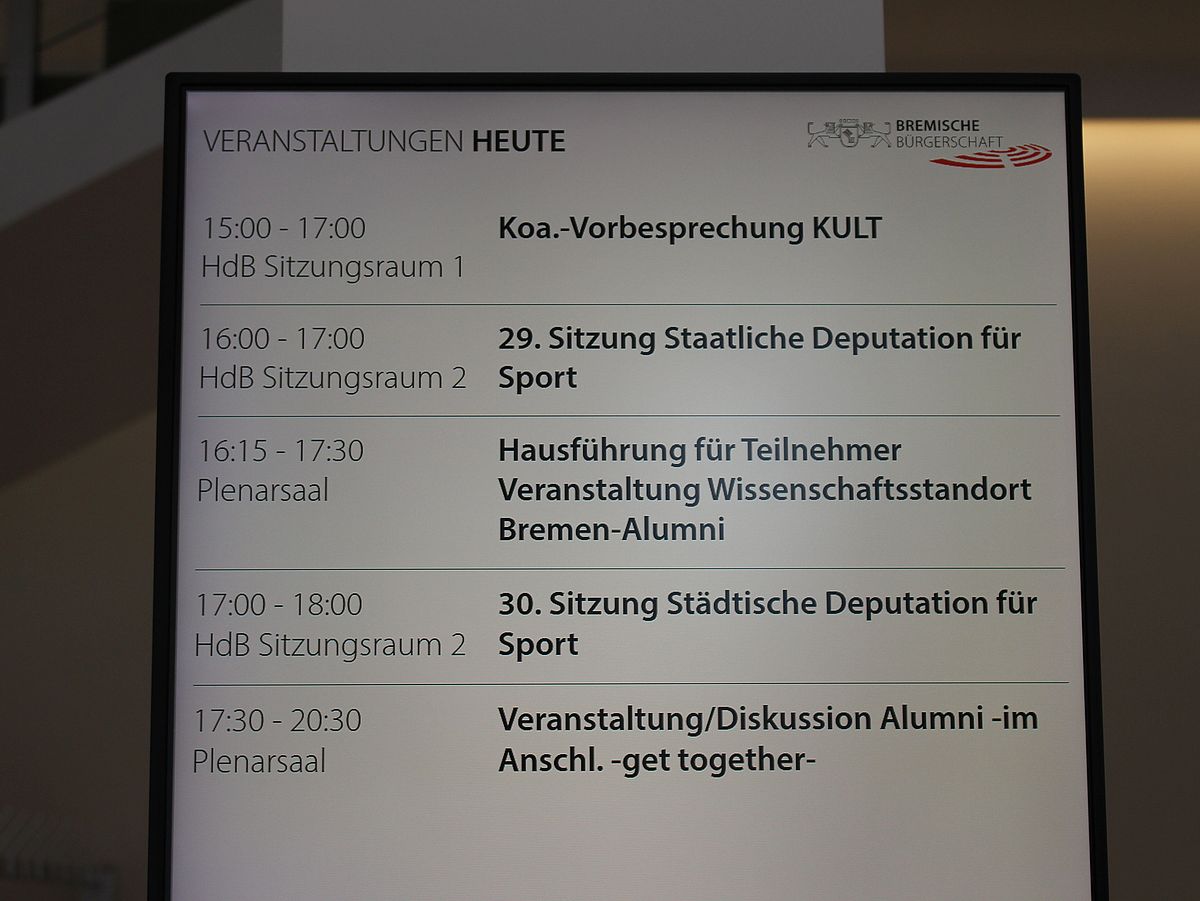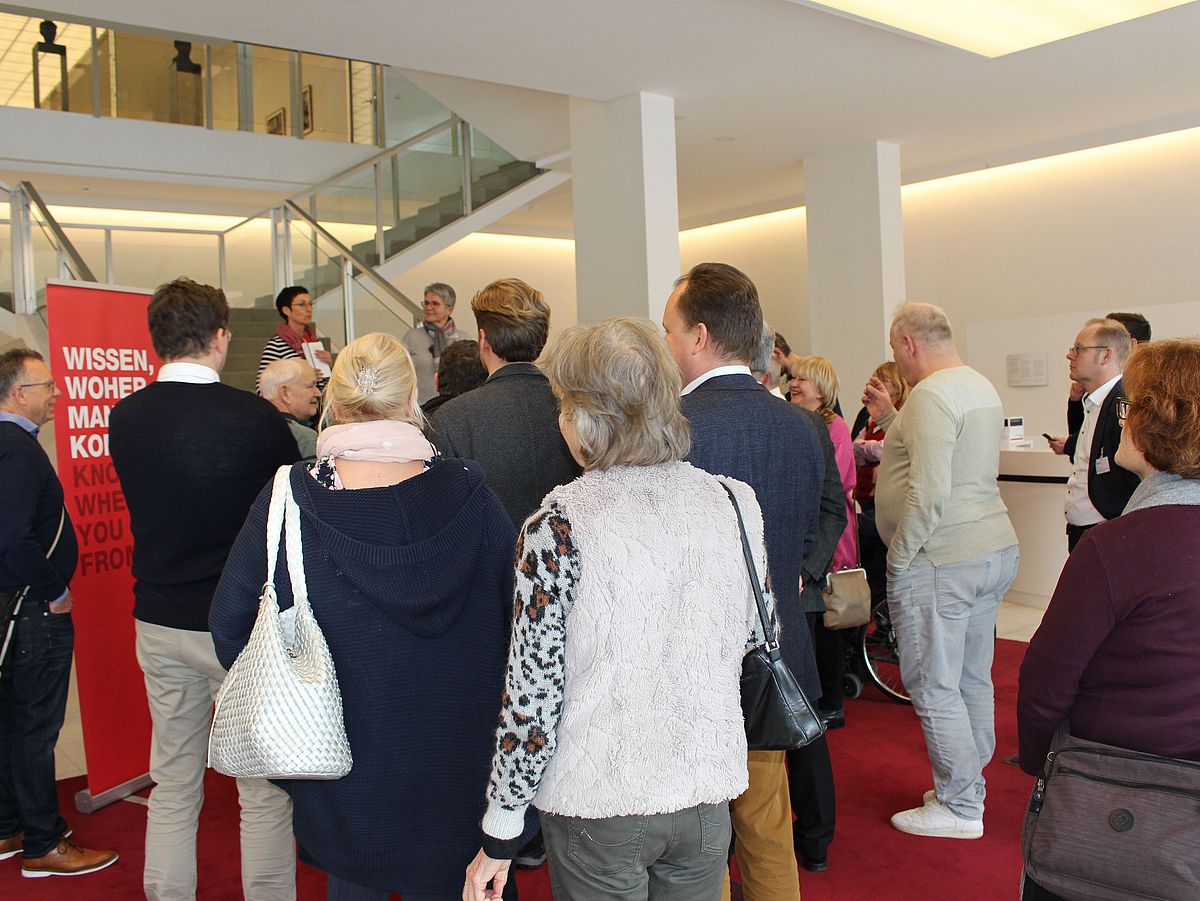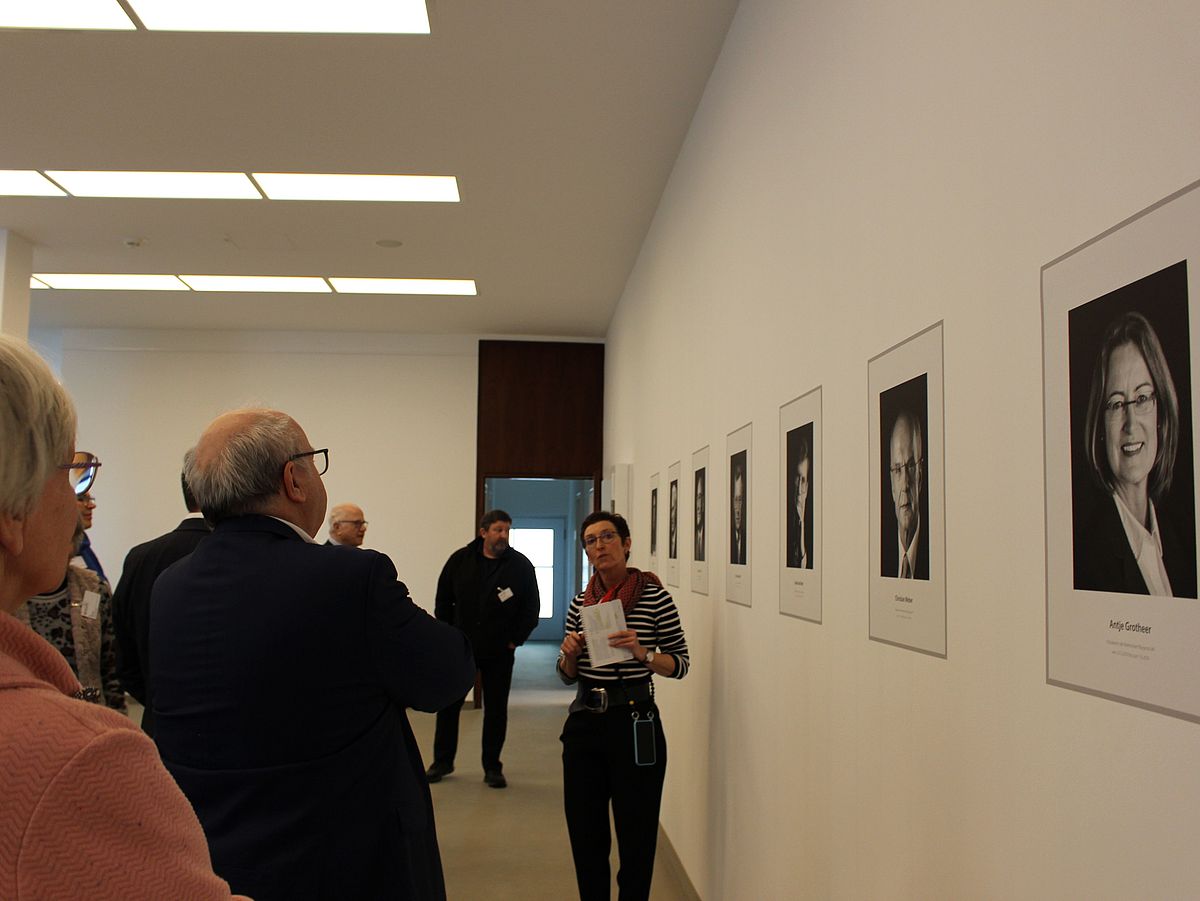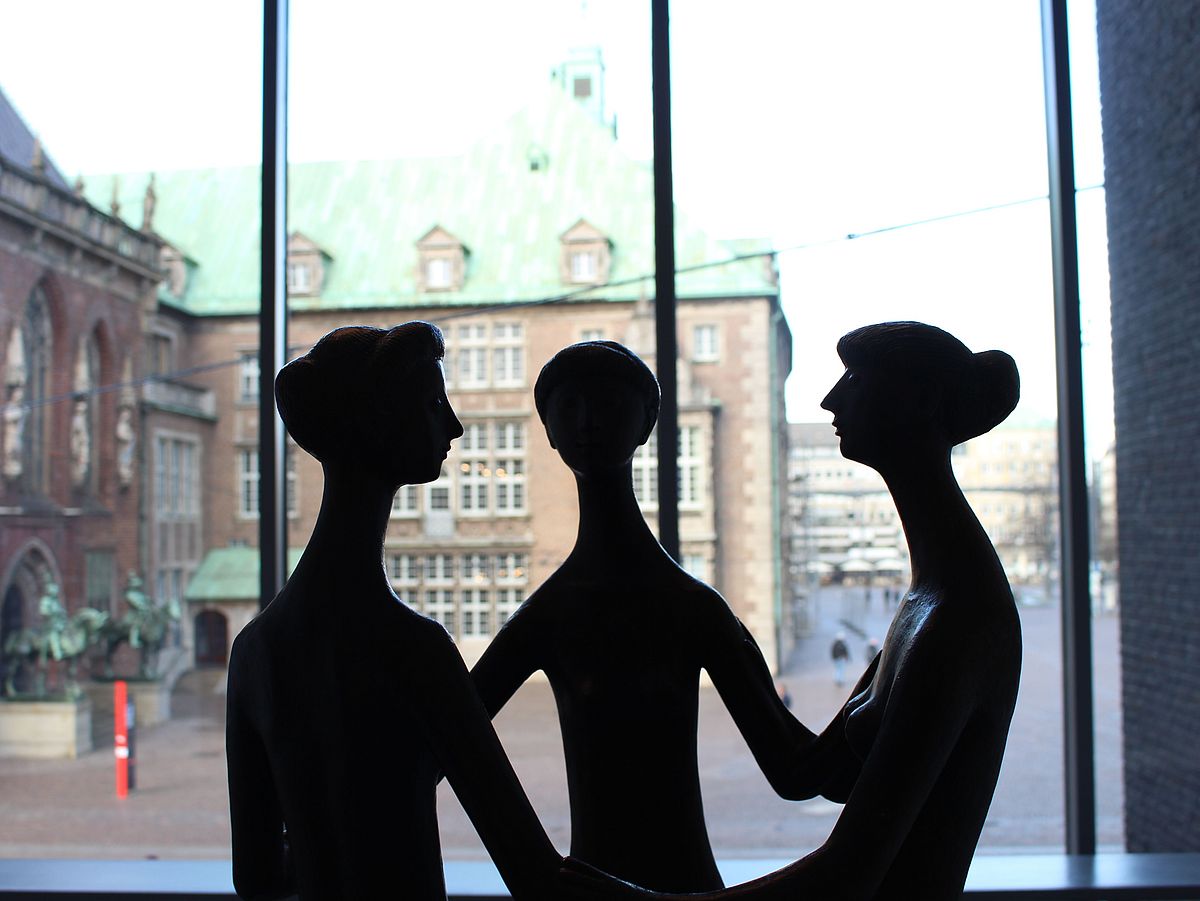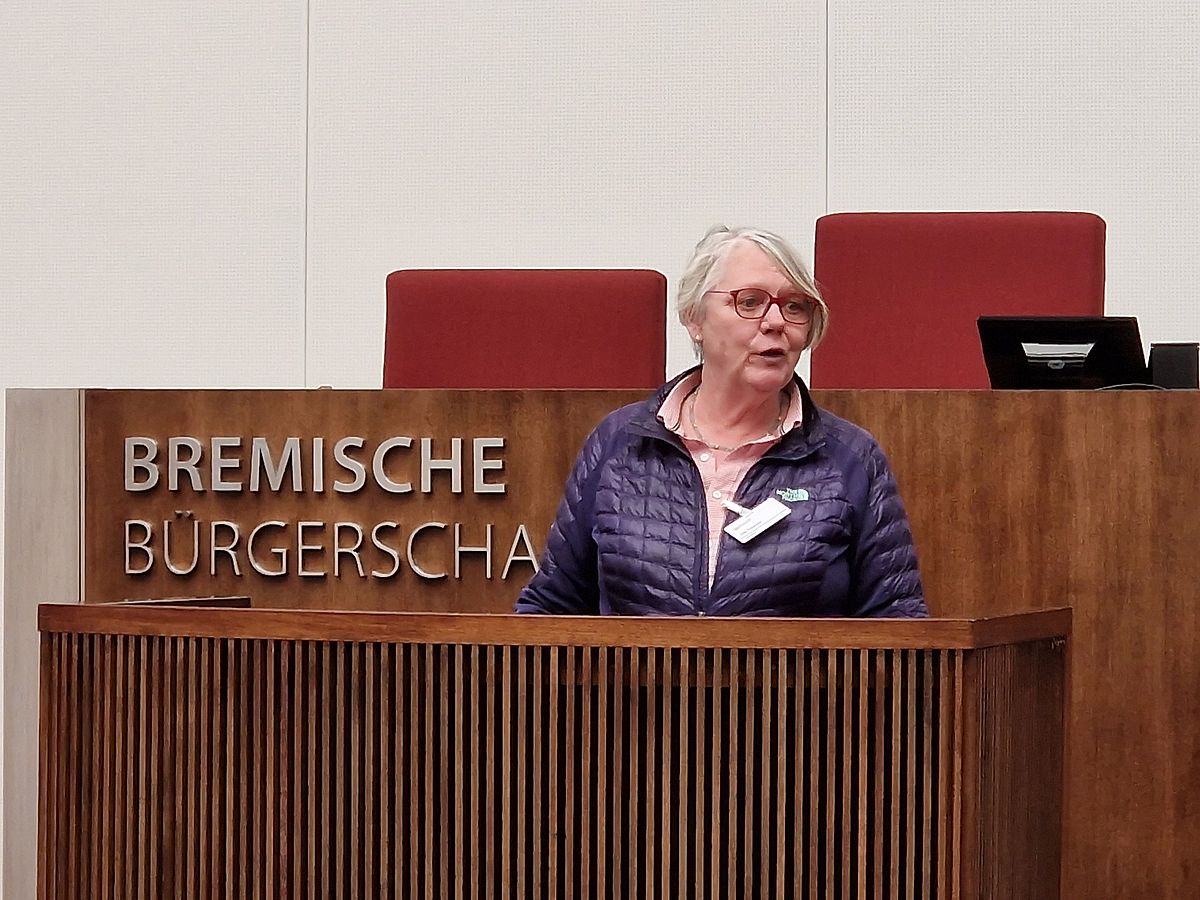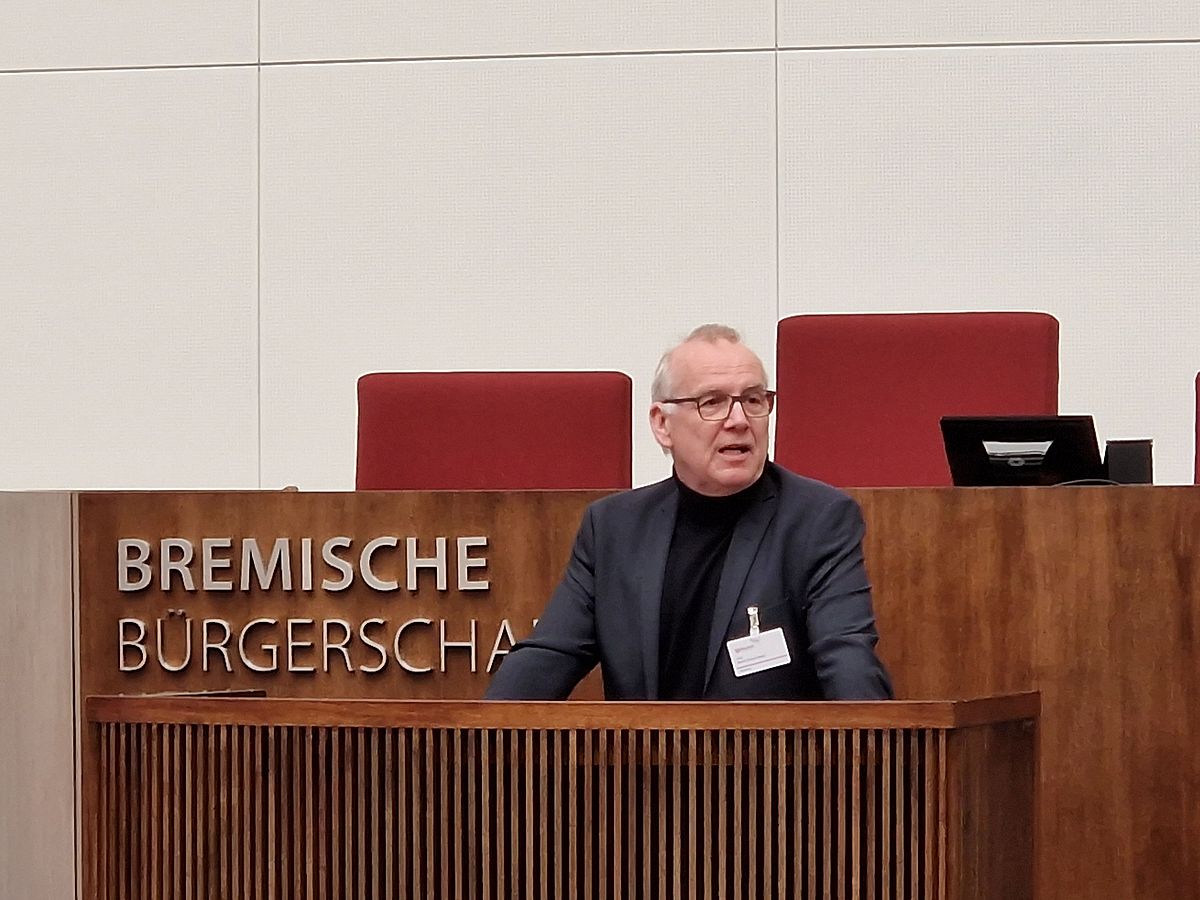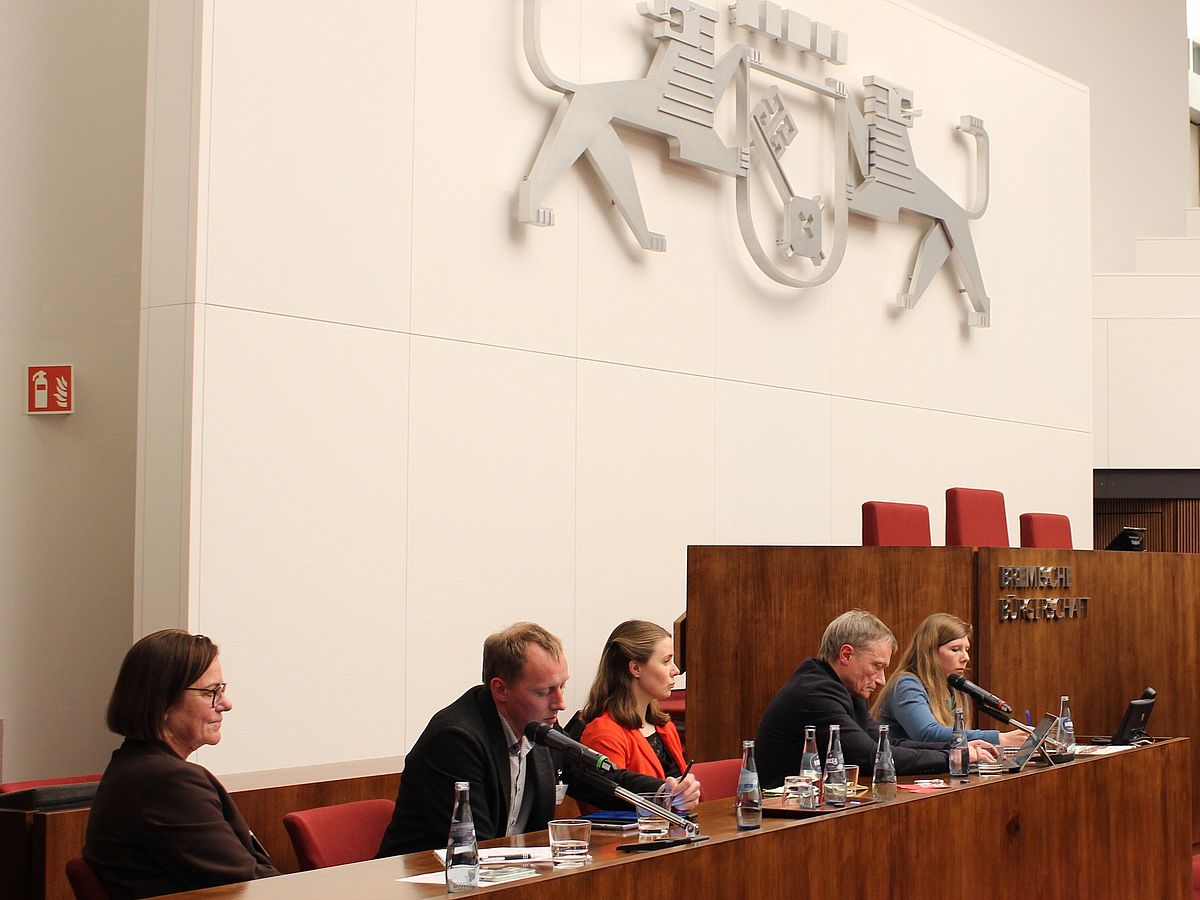Recap: Guided tour and panel discussion on "Bremen as a centre for science" in the Bürgerschaft

It felt a lot like big-time politics. In the plenary chamber of the Bremen Parliament, the MPs’ desks were occupied by Uni Bremen alumni. On the senate bench, science policymakers from Bremen’s parliamentary parties. And at the lectern, former rector Professor Bernd Scholz-Reiter leading a rousing discussion on "Bremen as a centre for science”, two months before Bremen's elections. What got the debate really going: enthusiastic alumni who repeatedly took to the microphones with questions and comments.
The politicians were in agreement that the universities located in the state of Bremen play a key role not only in current research and the state economy, but also in the state’s future direction. Under discussion was Science Plan 2025, a stocktaking effort and resulting planning instrument that was created at the end of the last legislative session to determine what funds and resources the science sector needs. It is already clear that the plan's intended goals, namely funding at about the same level as the federal average, will not be achieved. In the state budget, science funding for 2023 is projected to fall short by 74 million euros and 100 million euros for 2024. Incidentally, science funding represents Bremen’s third-largest budget outlay. During our panel discussion, the general consensus among the politicians was that the shortfall is largely due to the Corona crisis and financial disruptions since the start of the war against Ukraine. There were, however, varying opinions and points of emphasis on how the university and Bremen’s other higher education institutions can better position themselves in society and the public eye.
In Bremen, the interrelationship between science and industry is already quite good, said audience member Professor Gerold Wefer, founding director of MARUM - Center for Marine Environmental Sciences. But looking at cities like Munich, it is clear that there is still room for improvement. In the competition for skilled workers, it is essential for Bremen to undertake bold initiatives. As a positive example, party representatives pointed to the newly founded Digital Hub Industry, which attracts medium-sized companies with IT needs to Bremen. There is also ECOMAT, located at the airport, which currently serves a similar function for material sciences and will do so in the future for hydrogen technology.
On the subject of the law faculty’s planned move in 2025 to the former NordLB bank building (formerly Bremer Landesbank) at Domshof, there was a very emotional and contentious debate. A sample contribution: Bremen’s politicians are lying to themselves if they believe they can score a revitalised city centre with this new urban campus. All those up-and-coming lawyers would have to drink an awful lot of cappuccino in the nearby cafés, said Dr Rita Kellner-Stoll at the audience microphone, earning warm applause. What’s much more important, she said, is to further develop the campus and the technology park in Horn, which are already highly regarded by international academics, and thus to make the university’s process of internationalisation, which is already on a successful track, even more effective. Critical voices also raised the issue of the approximate 90 million euros in rent that the Senate is projecting for the NordLB building over the next 30 years, a sum that is also conceivable as an outright purchase price. For their part, the politicians agreed that in future, the existing campus should remain the university’s vital centre. The plan for the new lecture hall and event centre to be built there should not be abandoned under any circumstances, they said, despite financial difficulties triggered by the sharp rise in the cost of building materials.
All in all, a truly absorbing evening with a closing that Bremen’s MPs are well acquainted with: snacks and drinks in the Festsaal.
